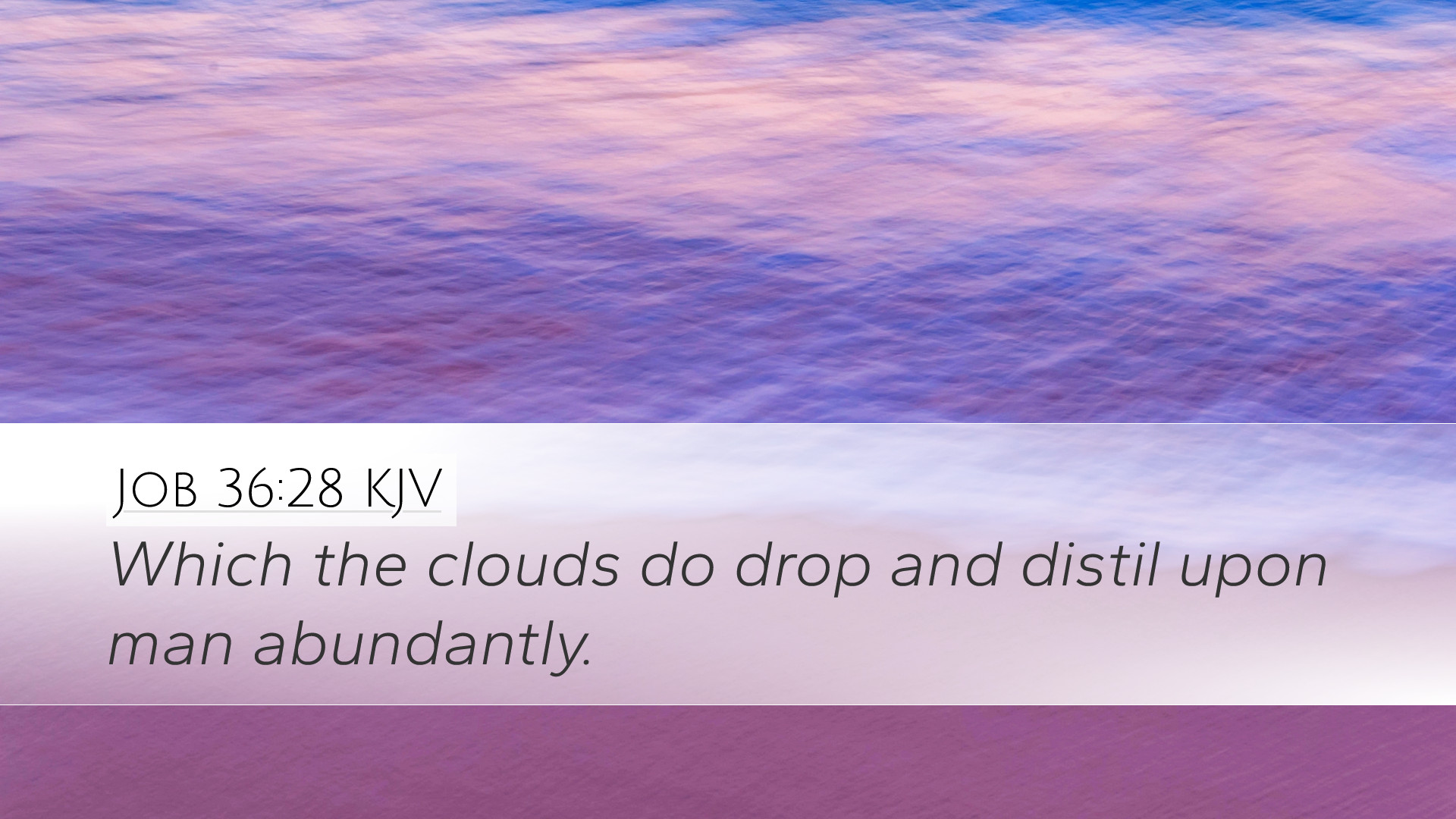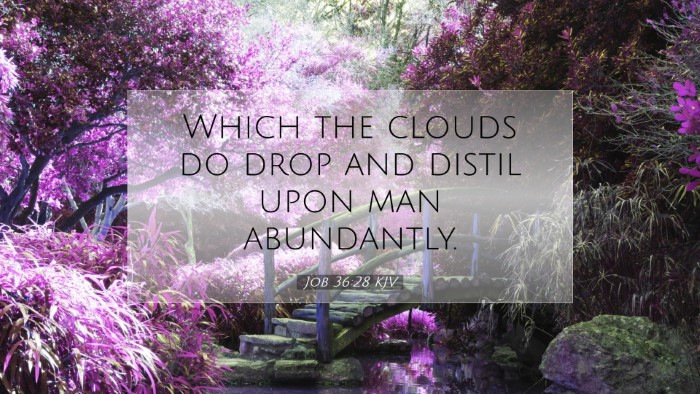Commentary on Job 36:28
Verse: Job 36:28 - "Which the clouds do drop and distil upon man abundantly."
Introduction
The passage from Job 36:28 invites a profound exploration of God's providence and the imagery of natural phenomena to illustrate spiritual truths. In many ways, this verse encapsulates the nature of God's grace and the divine acts that sustain both the physical and spiritual realms.
Contextual Background
Job, a man of blameless character who faced intense suffering, engages in a dialogue about suffering, divine justice, and human understanding. Elihu, a young friend of Job, speaks in this chapter to defend God's righteousness and sovereignty. Elihu points to the majesty of God as displayed in creation and how even nature serves a purpose in demonstrating God’s justice and mercy.
The Role of Nature
Nature, especially in the ancient Near Eastern context, often served as a backdrop for understanding divine attributes. Rain, clouds, and water are metaphors abundant in the Scriptures, representing blessings, nourishment, and life. Elihu’s reference to clouds illustrates both literal and metaphorical significance of divine provision.
Insights from Commentators
Matthew Henry
Matthew Henry, in his biblical commentary, emphasizes the spiritual implications of the imagery of clouds and rain. He notes that just as the clouds rain down upon the earth, so does God’s grace descend upon humanity.
- Grace and Abundance: Henry articulates that God's blessings are plentiful and that His mercy is "distilled upon man abundantly," highlighting the unmerited nature of divine favor.
- Human Dependency: This verse serves as a reminder of human reliance on God's provisions, paralleling the dependence of nature on rainfall.
Albert Barnes
Albert Barnes interprets the verse with a focus on the character of God’s providence. He explains that the "distilling" of rain is emblematic of God's constant care and oversight.
- Divine Providence: Barnes insists that the processes of nature are under God's control, an assurance to believers that God attends to human needs.
- Symbol of Mercy: He suggests that the imagery of the clouds and rain serves as a vivid illustration of God's mercy, reminding the faithful that God nourishes the earth and its inhabitants.
Adam Clarke
Adam Clarke adds depth by exploring the poetic elements of the passage. He points out the beauty and significance of the imagery Elihu uses.
- Poetic Imagery: Clarke reflects on the poetic nature of the verse, stating that it resonates with the readers through its vivid portrayal of God’s creative power.
- Reflection on Life: He remarks that just as rain brings life to the earth, so God’s providence revives and sustains the spirit of man.
Theological Implications
The theological implications of Job 36:28 challenge believers to recognize the interplay between divine sovereignty and human experience. This verse serves as a reminder of the assurance found in God’s provision amidst life's uncertainties.
1. The Concept of Divine Provision
Job 36:28 invites reflection on the concept of divine provision throughout the Scriptures. It resonates with the theme found in other biblical books that speaks to God's nurturing character.
2. God’s Sovereignty in Creation
The reference to clouds and rain demonstrates God’s sovereignty over creation. The natural world acts in accordance with His will, and human beings are beneficiaries of this divine arrangement.
3. Spiritual Nourishment
Just as rain nourishes the earth, the grace of God provides spiritual nourishment. This parallel invites believers to seek a deeper relationship with God, rooted in His sufficiency.
Conclusion
Job 36:28 serves as a powerful reminder of God’s providential care and the abundance of His grace. Through the imagery of the clouds distilling rain upon man abundantly, we are beckoned to appreciate the delicate balance between nature and humanity, reflecting on the divine sustenance that permeates our lives. As believers, may we continually seek to recognize and respond to the gifts of grace that God abundantly provides, trusting in His eternal goodness.


